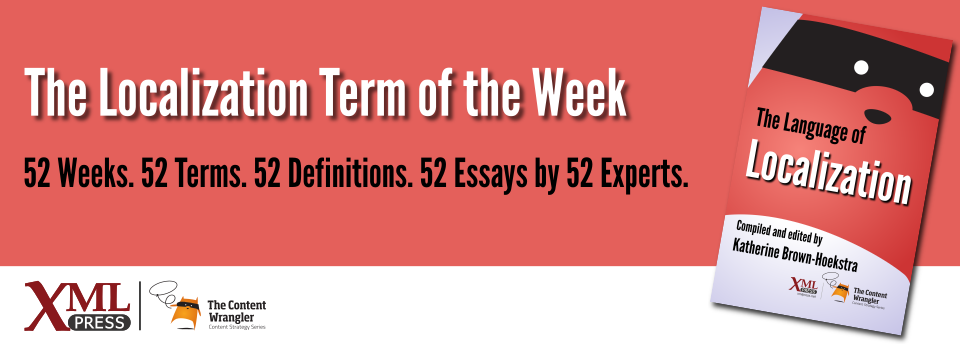What is it?
Translation Memory Exchange. An XML-based standard that facilitates the exchange of data between different translation memory (TM) tools.
Why is it important?
The capability of moving data between different tools makes TMX important to the industry. However, its flexibility can limit its applicability, because tool vendors often create variants, which can hinder interoperability.
Why does a technical communicator need to know this?
If a company using a computer-aided translation (CAT) tool decides to start using a new or different tool, for a number of reasons, they need to move their valuable translation memories from the old tool into the new one. TMX (Translation Memory eXchange) enables that migration. All CAT tools can make use of TMX files and export the translation memories contained in the CAT to a TMX file. This is the strength of the standard.
TMX was initially released in 1997. The most recent version is 1.4b, released in 2005[TMX 1.4 spec]. The standard has not been substantially updated since, although some work was done on a 2.0 version that, as of the date this was written, has not been completed.
Tool vendors are free to decide how they implement the standard. There are no rules about how to extract text segments and inline markup, such as bold, italic, etc., into a translatable document. So, software vendors often create different flavors of tags for storing these elements in a TMX file because they have different architectural goals. Thus, migrating data from one tool to another almost always leads to a loss of leverage in the match results, despite both tools being able to create completely valid TMX that complies with the standard. This is the standard’s weakness and makes it hard to apply in everyday situations.
It is important to understand that TMX is not the same as XLIFF. The latter enables the exchange of bitext data specifically for translation, while TMX is specifically for the exchange of full TMs.
References
- [TMX 1.4 spec] TMX 1.4b specification. Savourel, Yves and Arle Lommel.
- [TMX 1.0 spec] TMX Format 1.0. The original 1.0 specification of the TMX standard.

